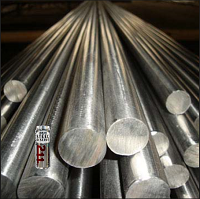Invasive Asian jumping worms are now in Kansas. Pe
Post# of 128906

May 26, 2022
Asian jumping worms are invading Kansas.
The wiggly, invasive type of earthworm bearing that name has been known to jump as high as 1 foot off the ground.
K-State Research and Extension is asking gardeners and others who come into contact with those worms to take action to help keep them from spreading.
"If Asian Jumping Worms are found on your property, don’t panic," that network says on its website. "Collect and discard any that you see. Worms can be sealed in a plastic bag and thrown in the trash."
The worms are considered invasive because they damage soil by leaving behind their worm castings, also known as "worm poo," according to K-State Extension and Research.

Jumping worms are darker than the earthworms common to Kansas
"Crazy worms" and "snake worms" are among other names by which Asian jumping worms are known, K-State Extension and Research said.
The jumping worms "live up to their name by wriggling and writhing when disturbed," it said. "Their body color is a darker gray than the lighter-colored European earthworm. They also have a white, smooth clitellum (band) that is the same diameter as the rest of the worm.
"European earthworms have a pinkish clitellum that is ridged and slightly raised."

Asian jumping worms are native to East Asia. The worms have wriggled their way across the United States, having been found in dozens of states.
More: Don't want a large compost pile? Try creating a worm bin for vermicomposting.
Unfortunately, the Asian jumping worm reproduces far more rapidly than the European earthworms that are common in Kansas.
"A single worm can create viable eggs without having a mate, so only one worm can create an entire population," said the Missouri Department of Conservation website. "It only takes 60 days from the time an egg hatches to it becoming a sexually mature adult; that means there can easily be two broods a year, and exponential growth."
Jumping worms were initially brought here for fishing, composting

Asian jumping worms were originally introduced to North America to be sold as fishing bait and used for composting, according to the Missouri Department of Conservation.
"Their jerky movements made them attractive to fish and therefore to anglers," it said. "Their stupendous ability to eat up plant matter made them (at first) seem like a good idea for worm composting. In fact, however, their ultimate effect is to reduce nutrients in soils."
At least three species of Asian jumping worms are spreading in North American, the site says, adding that the worms tend to be four to eight inches long as adults.

Asian jumping worms are usually found in the top three or four inches of soil, the Missouri Department of Conservation website adds.
"These worms are largest, most conspicuous and most abundant from midsummer until freezing weather," it said. "Where they are most numerous, the soil begins to resemble coffee grounds or cooked ground beef."
Adult jumping worms may not survive winters in Kansas or Missouri, but their eggs can, the Missouri Department of Conservation site said.
"The egg cases are small enough to be transported accidentally from one location to another — in the soil of a potted plant, in compost, in dirt clinging to a backhoe, or even in some mud stuck to your boot," it says. "This is why it’s important to take measures not to accidentally spread these worms from infested areas into places free from them."
Source:
https://www.yahoo.com/news/invasive-asian-jum...19361.html
I wonder why they consider "worm poo" bad? This must be a bigtime librul article. I cherish every worm on my property for my garden and they are decomposers. I always believed in science. Even then, why not use them for fishing? Catch dinner every day of the week...
Article seems lacking..
 (1)
(1) (0)
(0)